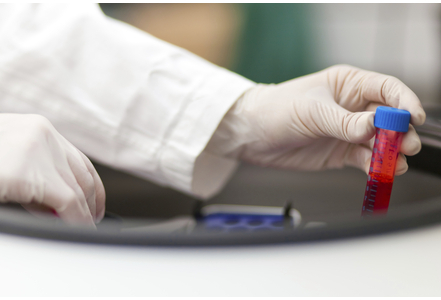Scientists: ‘Positive’ results in 1st human trial of experimental Ebola vaccine

Image: http://www.africaguinee.com/sites/default/files/field/image/virus-ebola-un-premier-vaccin-lance-debut-2015_exact441x300.jpg
Source: http://edition.cnn.com/2014/11/27/health/ebola-outbreak/index.html?hpt=hp_t1
(CNN) — The first human trial of an experimental Ebola vaccine has produced promising results, U.S. scientists said, raising hopes that protection from the deadly disease may be on the horizon.
All 20 healthy adults who received the vaccine in a trial run by researchers from the National Institutes of Health in Maryland produced an immune response and developed anti-Ebola antibodies, the NIH said Wednesday.
None suffered serious side effects, although two people developed a brief fever within a day of vaccination.
The vaccine is being developed by the NIH’s National Institute of Allergy and Infectious Diseases and British pharmaceutical giant GlaxoSmithKline. The process has been fast-tracked in light of the current catastrophic Ebola outbreak in West Africa, which has claimed more than 5,000 lives.
“Based on these positive results from the first human trial of this candidate vaccine, we are continuing our accelerated plan for larger trials to determine if the vaccine is efficacious in preventing Ebola infection,” said Anthony Fauci, director of the National Institute of Allergy and Infectious Diseases.
In this trial, genetic material from two strains of the Ebola virus, Sudan and Zaire, was delivered using a chimpanzee cold virus that does not harm humans. The vaccine does not contain the Ebola virus and cannot cause a person to be infected with Ebola, the NIH said. The current outbreak involves the Zaire strain.
The adults, volunteers ages between 18 and 50, were split into two groups. Half received an intramuscular injection of vaccine at a lower dose and 10 received the same vaccine at a higher dose, the NIH said.
Researchers tested the volunteers’ blood at two weeks and four weeks after vaccination to determine if anti-Ebola antibodies had been produced.
All 20 volunteers developed such antibodies within four weeks of receiving the vaccine, with levels higher in those who were given the higher-dose vaccine.
The researchers also looked to see if the vaccine prompted production of immune system cells called T cells, after a previous study on primates using the same vaccine suggested they may also help to protect from the disease.
They found that many of the volunteers did produce T cells, including CD8 T cells, which may play a crucial role in protecting against infection by Ebola viruses.
Four weeks after vaccination, the CD8 T cells were found in two volunteers who received the lower dose vaccine and in seven who had the higher dose, the NIH said.
The two volunteers who briefly developed a fever received the higher dose vaccine.




6 Comments
Piece of writing writing is also a fun, if you be familiar
with afterward you can write or else it is
complicated to write.
It’s hard to come by knowledgeable people about this topic, but you sound like you know what
you’re talking about! Thanks
Hello to all, it’s truly a nice for me to visit this web page, it
includes precious Information.
Excellent beat ! I would like to apprentice while you amend your web site, how
could i subscribe for a blog site? The account helped me a acceptable deal.
I had been tiny bit acquainted of this your broadcast offered bright clear concept
It’s not my first time to go to see this site, i am browsing this website dailly and obtain good information from here
everyday.
Keep this going please, great job!